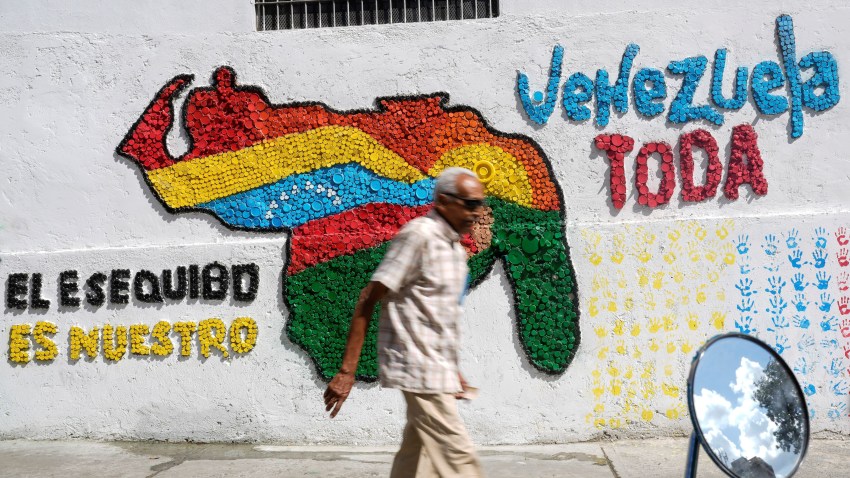Yesterday, Venezuela held a controversial referendum to underscore its longstanding territorial claim on Guyana’s Essequibo region. The referendum consisted of five questions regarding the legal status of the territory and various pathways to resolving the dispute. Many observers worried that the questions essentially amounted to an effort to provide popular legitimacy for the government of President Nicolas Maduro to seize Essequibo and annex it into Venezuela. According to the government, 95 percent of those who voted agreed that Essequibo belongs to Venezuela.
The rest of the world considers the dispute over the region to have been settled in the late 19th century, when Venezuela ceded a Florida-sized area of territory to what was then British Guiana, which the now-independent country of Guyana still controls today. Essequibo makes up about two-thirds of Guyana’s territory, though it is relatively underdeveloped and accounts for only about a quarter of the population.
What the Essequibo region does have is oil—in particular, significant offshore deposits that are rapidly turning Guyana into one of the largest oil producers in South America. The country is producing around 400,000 barrels per day, up from 100,000 barrels per day just three years ago. Energy companies estimate that Guyana will be producing over 1 million barrels per day within the next three years. That stands in stark contrast to Venezuela, where decades of mismanagement have degraded the country’s oil industry from around 3 million barrels per day when former President Hugo Chavez took power in 1999 down to around 700,000 barrels per day this year. The depleted infrastructure combined with U.S.-imposed sanctions means that any effort to restore Venezuela’s oil industry to even half the size it once was will take many years and billions of dollars.

